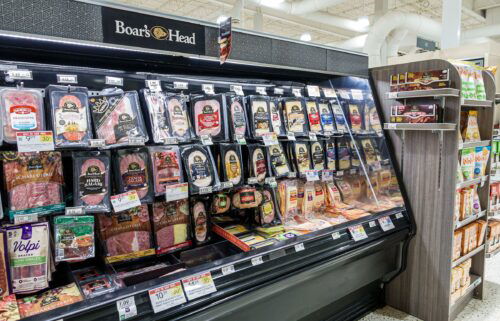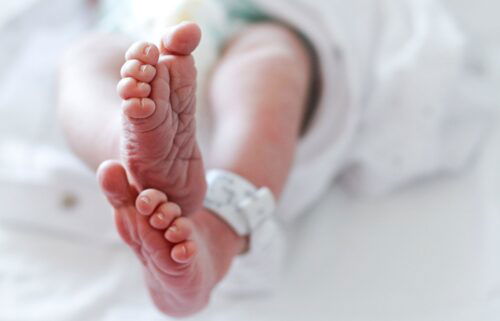New research reveals how coffee and tea can affect risk of early death for adults with diabetes

Adults with type 2 diabetes who drink more coffee or tea lower their risk of heart disease
By Sandee LaMotte, CNN
If you have type 2 diabetes, drinking more coffee, tea or plain water may lower your risk of dying prematurely from any cause by about 25%, a new study found.
However, drinking more sugar-sweetened beverages raised the risk of heart disease by 25% and the risk of dying from a heart attack or another cardiovascular event by 29%, the study said. Research has shown cardiovascular disease is the most common cause of death for people with type 2 diabetes.
“Certain beverages are absolutely more beneficial than others, depending on which type of beverage you’re comparing,” said study author Qi Sun, an associate professor of nutrition and epidemiology at the Harvard T.H. Chan School of Public Health in Boston.
“Based on our study I would rank black coffee, unsweetened tea and plain water higher than low-fat milk, fruit juice or artificially sweetened beverages,” he said. “Sugar-sweetened beverages like colas, fruit juices that are high in sugar and whole fat milk that’s high in saturated fat are known risk factors for developing type 2 diabetes and premature cardiovascular disease.”
More than one serving a day was high
The study, published Wednesday in the journal BMJ, analyzed the dietary data of nearly 15,500 adults with a diagnosis of type 2 diabetes who were part of the Nurses’ Health Study and Health Professionals Follow-Up Study in the United States.
Nearly 75% of the respondents in the studies were women with an average age of 61. Every two to four years for an average of 18 years, participants answered questions about their consumption of eight different types of beverages — artificially sweetened drinks, coffee, fruit juice, low-fat and whole milk, plain water, tea, and sugar-sweetened beverages.
Examples of sugar-sweetened drinks included caffeinated sodas, caffeine-free sodas, fruit punches, lemonades and other fruit drinks. More than one such drink a day was considered a high level of use; low consumption was less than one sugar-sweetened drink a month.
The study defined a high intake of coffee (caffeinated and decaffeinated) as four cups a day, tea as two cups a day, water as five glasses a day and low-fat milk as two glasses a day. A low amount for each beverage was less than one cup or glass a month.
The analysis showed that people who drank the most sugar-sweetened beverages had a 20% increased risk of death from any cause compared with those who consumed the least. Dying from a cardiovascular-related event, such as a heart attack, rose by 29%, the study found.
The risk of an early death rose by 8% for each additional serving a day.
Consuming high amounts of coffee, tea, water and low-fat milk, on the other hand, was associated with lower mortality when compared with drinking a low amount, according to the study. There was a 26% lower risk of early death associated with drinking coffee, 21% for tea, 23% for plain water and 12% for low-fat milk.
Looking specifically at cardiovascular disease, the data showed a higher intake of coffee was associated with an 18% reduced risk of heart disease. Drinking low-fat milk reduced the chances of having heart issues by 12%, the study found.
Making a change helped
There was some good news for people who were die-hard drinkers of sugar-sweetened beverages before they were diagnosed with type 2 diabetes. When those sweet drinks were replaced with coffee or artificial no-calorie drinks after the diagnosis, risk of an early death dropped significantly, the study found.
When both sugar-sweetened and artificial no-calorie drinks were replaced with coffee, tea, plain water and low-fat milk, there was an even lower risk of heart disease and death from any cause.
There was no data on the types of tea (black, green, herbal or fruit) consumed during the studies and no information on whether participants added sugar to coffee or tea. Lack of data on this common additive means “comparative health effects of unsweetened and sweetened hot beverages remain unclear,” wrote Nita Forouhi, program leader and investigator of nutritional epidemiology at the UK’s University of Cambridge in an accompanying editorial.
The study was observational, so the findings cannot be viewed through a lens of cause and effect. However, the authors “carried out detailed, repeated collection of dietary data, followed-up participants for nearly two decades, applied comprehensive adjustments for confounding factors, and conducted 12 different sensitivity analyses,” said Forouhi, who was not involved in the study.
“The case for avoiding sugar-sweetened beverages is compelling,” she said. “Choice of beverage clearly matters.”
The-CNN-Wire
™ & © 2023 Cable News Network, Inc., a Warner Bros. Discovery Company. All rights reserved.



